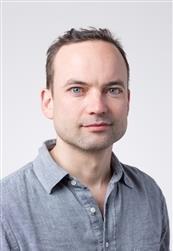THISPROGRAMME

What does it mean to study New Media & Digital Culture at a Master’s level? The programme has had an inquisitive and explorative character, combined with a critical focus, ever since the Master’s programme was initiated in 1998. This reflects the specific yet purposely broadly defined objects of research: media technologies and the cultures they produce and are embedded in. In addition to studying the medium-specific qualities of media as material objects, the programme also looks at media practices (ways of doing) and at discourses (ways of speaking). For instance, how do new media shape how we relate to each other, to our environment, and modes of self-presentation? When are media presented as ‘new,’ by whom, and with what purpose? What does it mean when something is identified as being ‘digital’, and what are the assumptions about its characteristics and affordances?
The programme specialises in three major contemporary research areas about new media technologies in relation to culture and society, These are 1) mobile media and urban culture, 2) games and playful culture, and 3) datafication and algorithmic culture. The programme also considers how these three research areas intersect. This choice is informed by our own research activities in national and international partnerships, and is anchored in various research groups in the Media and Culture Studies Department and the University Just to be sure, this is not an exclusive focus: other objects and academic perspectives on new media feature throughout our programme We always situate ourselves within a broader media-historical and comparative context, and students are free to develop their own interests around particular objects and themes related to new media and digital culture in a broad sense.
EDUCATIONALPHILOSOPHY
The strength of our approach to studying new media phenomena manifests itself most clearly in the many complementary areas of research that find their place between the three key areas mentioned above; as a student, you will have ample opportunities to situate your own particular research interests within theories and methods composed of multiple approaches. You want to write about mobile or streaming music? Political-economic aspects of a sharing culture? Search algorithms with a bias? Augmented reality and its history? There is always a way to make that work within the framework we offer.
This open approach also fits the way we do research within our department’s many research groups and projects These include [urban interfaces], Dataschool, Governing the Digital Society, Digital Games and Play, Green Media Studies, Media Industries, Infrastructures and Institutions, and others (see “Extra-curricular activities” at the end of this factsheet). This educational philosophy, combined with our focus on a culturally and historically contextualised research triad, is what distinguishes us from other new media-oriented programmes in the Netherlands and beyond.
OURSOCIETALMISSION
The MA programme aims to train you as an independent thinker who critically reflects on contemporary media technologies and their role in cultural production. You will learn how to use your academic skills in fields related to new media practices in science, society, and everyday life. The compulsory research internship will complement your theoretical knowledge with hands-on practice, and allows you to develop your professional skills for the job market. You will learn how to communicate conclusions, justifications, and considerations to an audience composed of specialists and non-specialists.
LEARNING G OALS AND OBJECTIVES
A graduate of an MA degree in New Media & Digital Culture
✓ has advanced knowledge of and insight into the field of Media and Culture Studies, based on approaches from the humanities;
✓ has thorough knowledge of at least one sub-field within the chosen study programme;
✓ has the academic skills to conduct research in the field of Media and Culture Studies and report on it in a manner that meets the customary standards of the discipline;
✓ is able to apply knowledge and skills in a professional setting within the labour market;
✓ can communicate insights and conclusions, as well as the underlying knowledge, grounds and considerations, to an audience composed of specialists or nonspecialists.
All in all, this programme will teach you to play a leading role as a constructive thinker, policy advisor, media creator or cultural mediator. You will come to possess the tools and vocabularies to investigate and to enlarge our understanding of the many dynamic ways in which new media technologies are embedded within, and reflect on, a changing society.
CURRICULUM
The MA in New Media & Digital Culture comprises 60 credits in the European Credits Transfer System (ECTS) and is divided into four 10-week blocks. In the first and second block, you take four compulsory courses and choose two electives (of which at least one needs to be a core elective).
New Media Theories (5 EC)
Core elective (5 EC)
State of the Art: NMDC (5 EC) (Core) elective (5 EC)
Research Lab I (5 EC)
Research Lab II (5 EC)
MA Thesis (15 EC) Research Internship (15 EC)
You can choose from the following list of electives on offer for 2022-2023 (core electives in left column):
Playful Media Cultures
Digital Methods in Media Research
Urban Mobile Media
Platforms, Data, and Cultural Production
Transmedia and Diversity
Programming and Curation
Transnational Media Cultures
Once you have successfully completed blocks 1 and 2 you can start writing your MA thesis in block 3, under individual supervision of a member of the core NMDC team (see below) Its size is around 10.000 words with a margin of +10%, depending on the nature of the research (not counting notes, title page, list of illustrations, transcriptions, and bibliography).
The aim of the MA thesis is that you demonstrate that you have mastered the ability to:
1. design a research project by formulating, analysing and evaluating issues and problems within the student’s academic field and setting up a research concept that adheres to the guidelines of the Master’s programme;
2. carry out largely independent research on the topic described in the approved research concept;
3. report, in the form of the thesis itself, about this research at a level that complies with generally accepted disciplinary norms.
In block 4 you will actively engage with the professional field and learn to translate academic knowledge into everyday organizational, business, and policy issues by performing a 3-month fulltime Research Internship If you want to do an internship which is longer than this period or in any other way deviates from the standard requirements you will need to seek permission from the master coordinators. Your final research internship report consists of two, often interrelated parts: the internship research (40006000 words) and a personal internship assessment (2000-2500 words). The final form of your report will be the result of choices you make in consultation with your supervisor.
FACT! If you need more information on courses, thesis and internship, consult the Curriculum page on our programme’s website. Detailed information is also provided in course manuals handed out before the start of each of the four blocks
BLOCK 1
BLOCK 2
BLOCK 3
BLOCK 4
CORETEAMOFLECTURERSANDSUPERVISORS
■ ■ ■
D R . D ONYA A LINEJAD
Expertise: Digital diasporas, Social media, Postcolonial theories and gender studies

■ ■ ■
D R . D AVID G AUTHIER
Expertise: Software Studies, Mediakunst
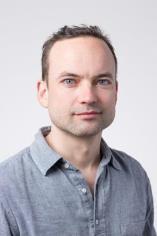
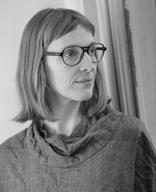
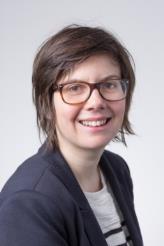
■ ■ ■
D R . K ARIN VAN E S
Expertise: Platform studies, Tool criticism, Algorithmic society, Datafication
■ ■ ■
D R . R ENÉ G LAS
Expertise: Games and play studies, playful media literacies, games and paratextuality
■ ■ ■
D R D ÉSIRÉE F ÖRSTER
Expertise: environmental sensing, media aesthetics, affect, and experimental practices.
■ ■ ■
D R . A NNE H ELMOND
Expertise: Platformisation, Datafication, Digital Methods, Political Economy of mobile data


■ ■ ■
D R . I NGRID H OOFD
Expertise: Philosophy of technology, Feminist and critical theories, Information ethics.
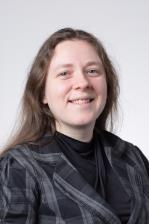
■ ■ ■
D R . A NNE K USTRITZ
Expertise: Fan cultures, new media ethnography, Digital economies
■ ■ ■
D R . M ICHIEL DE L ANGE
Expertise: Urban and mobile media, Cultural identities, Anthropology
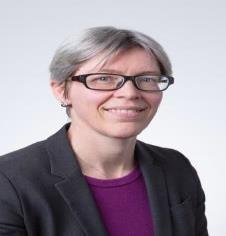
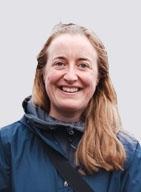
CORETEAMOFLECTURERSANDSUPERVISORS(CONTINUED)
■ ■ ■
P ROF . D R . B RUCE M UTSVAIRO
Expertise: Digital and data dissidents, Social media politics, Disinformation and democracy


■ ■ ■
D R . G ERWIN VAN S CHIE
Expertise: Datafication, Discursive interface analysis, Postcolonial studies

■ ■ ■
D R . S TEFAN W ERNING
Expertise: Software studies, Game and play studies, Practicebased research

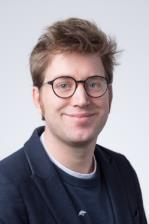
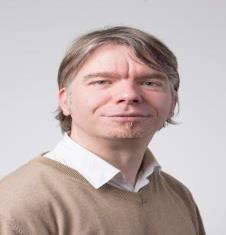
■ ■ ■
D R . D ENNIS N GUYEN
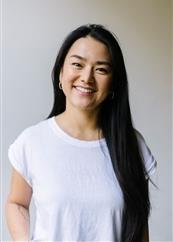
Expertise: Digital literacy, Digital methods, Online public spheres, Transnational political discourses
■ ■ ■
D R I MAR DE V RIES
Expertise: Media archaeology, Virtual and Augmented realities, Communication history
■ ■ ■
D R . J ING Z ENG
Expertise: Digital Methods and Critical Data Studies, misinformation, youth culture and online activism.
■ ■ ■
P ROF . D R . J OOST R AESSENS
Expertise: Ludification of culture, Green media, Persuasive/Applied gaming
■ ■ ■
D R J ASPER VAN V UGHT
Expertise: Game methodologies, Media ethics and narratology, Digital media theory
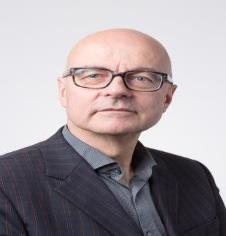
DOYOUWANTTOGETINVOLVED?
To oversee the quality of the programme, each year an independent Curriculum Advisory Committee (“Onderwijscommissie” or OC) is assembled, consisting of lecturers and students of New Media & Digital Culture and the Media Studies sister programme Film and Television Cultures. The Committee evaluates courses and the programme as a whole, by convening four times in a year and by organising informal talks with coordinators. Student members of the OC represent all students of their respective programmes and receive financial compensation for their activities. If you are interested in joining the Committee, please contact the chair of the OC Media Studies: André van der Velden (a.w.t.vandervelden@uu.nl).
EXTRA-CURRICULARACTIVITIES
While we can only offer a select number of courses during our MA programme, there are plenty of opportunities to enrich your MA experience by being part of some of our extra-curricular activities. Please have a look at: https://students.uu.nl/en/hum/nmdc/curriculum/extra-curricular-activities
STUDYADVISORS
Facing issues with your studies? The study-advisors are here to help and support you to successfully complete your degree. They can act as confidential counsellors, advise on issues regarding special circumstances, and look at possibilities to cope with studying while dealing with disabilities or chronic illnesses. They can also help with specific arrangements and procedures, such as complaints, objections, and appeals.
Other student support and well-being
The UU offers all kinds of support in the field of wellbeing. Good health and wellbeing are not only crucial ingredients for a good and effective student life, they contribute to a rewarding professional life after your studies as well.
That is why we offer you the opportunity to focus on the personal side of professional development in addition to the academic development you are going through. In that context, we offer various (group) activities to support your well-being that help with staying resilient and flexible, capable of dealing with stress, procrastination and perfectionism, focusing on what is important and being able to make decisions.
Take a look at our website for the training offer: https://students.uu.nl/en/hum/personal-development/wellbeing-trainers Check this link for further information and weblinks to various student services.
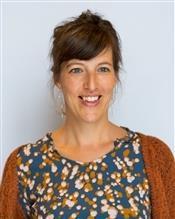
■ ■ ■ M AAIKE W OUDA
IMPORTANT FOR HUMANITIES STUDENTS
New students students.uu.nl/hum-new
Practical information for new students at the Humanities faculty.
Academic calendar students.uu.nl/hum-calendar
Information about days off, course registrations and change-of-enrolment days.
UU online

Information about our online systems and how to log in: students.uu.nl/hum-online In need of a manual? IT manuals: https://manuals.uu.nl/en
REGISTRATION, PROCEDURES, INTERNSHIP INFO
Student Information Desk Humanities students.uu.nl/hum-contact
Programme related matters, such as • course registration
• course schedules
• study results & study progress (Osiris)
• graduation
Student Services students.uu.nl/en/contact/student-services
Studying at Utrecht University in general: • registration as a UU student

• tuition fees
• elite athletes
• disability or chronic illness
Internship coordinator students.uu.nl/hum-internshipcoordinator


Information about:
• guidelines and procedures
• internship placements
QUESTIONS ABOUT ENTERING THE JOB MARKET
Career Services students.uu.nl/hum-careerservices
Advice on getting a job after graduation through workshops, CV check-up, and coaching. Your programme coordinator will inform you about programme-specific events.
NEED EXTRA HELP?
Study advisor: students.uu.nl/hum-studyadvisor






Student psychologist: students.uu.nl/psychologist
Workshops: Skills Lab: students.uu.nl/en-skillslab
THINKING OF GOING ABROAD ?
International office Humanities: students.uu.nl/hum-io
OTHER FACILITIES
University Library: students.uu.nl/hum-library
Olympos sports centre: olympos.nl/en-us/home.aspx
Parnassos cultural centre: uu.nl/en/parnassos
FACT! You can find your grades, student card and timetable in the MyUU portal and the MyUU app: students.uu.nl/en/myuu and students.uu.nl/en/ myuu-app
FACT! In the second semester, you will have to register in Osiris for courses you wish to attend. If you want to switch courses, you can do so on the change-ofenrolment days before the start of the relevant block.
FACT! Deadlines are always listed in the course syllabus, which your lecturer will provide approximately 2 weeks prior to the course’s ’start.
FACT! If you need more information about specific aspects of your programme, e.g. internships or thesis, please see the Curriculum page on the programme website via students.uu.nl/hum. FACT! Check students. uu.nl/hum-studentlife for information about living, jobs, sports and leisure in Utrecht!
© June 2023. Utrecht University, Faculty of Humanities. Every effort has been made to ensure that the information presented in this factsheet is correct and up to date. Utrecht University cannot be held liable for any false, inaccurate, or incomplete information presented herein.
